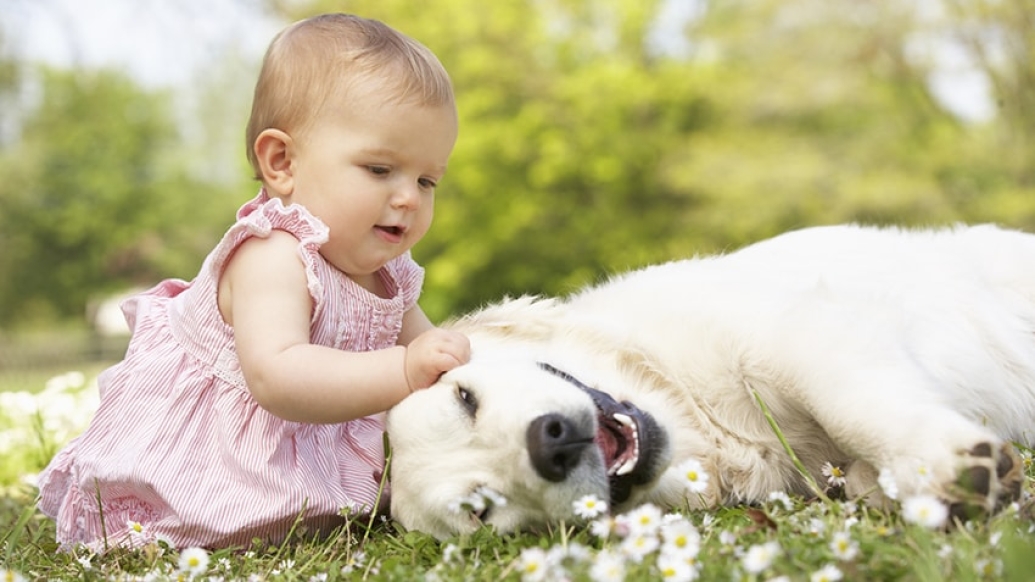What pet parents can do to help Fido get ready for a new brother or sister.
10:00 AM
Author |

Moms and dads make countless preparations to welcome new babies into their homes, but they often neglect to ready an important family member for the arrival: the dog.
SEE ALSO: How to Protect Your Baby from the Dangers of Hot Weather
"When I meet a family that's bringing in a newborn, I always ask if they have a pet and how the pet is reacting," says Sara Laule, M.D., a pediatrician with C.S. Mott Children's Hospital. "Some dogs are more flexible than others."
Temperaments can vary — and they're not exclusive to an animal's age, size or breed.
Timid canines in most cases "want nothing to do with babies," Laule says, while other pups could be overly excitable when faced with an infant. Some might even show aggression toward, say, a toddler with a tendency to tug on ears or pull fur.
That's why taking steps to acclimate a dog in advance is important.
Laule, herself a mother of two young children and a 4-year-old Labrador retriever, offered tips for peaceful cohabitation.
Tips for introducing pets to a new baby
Establish new routines: If your dog hasn't been around a baby before, have friends or relatives bring theirs over to gauge the reaction. Laule also walked with a stroller at the end of her first pregnancy to condition the animal and train herself to manage both elements.
Prepare for common scenarios: Within reason, you can accustom dogs to the types of poking or prodding they might receive — and offer treats as reward for the intrusion. "It's not a bad idea if you think your dog is going to be really annoyed," Laule says. She also taught her dog to retreat by saying "shoo" and, while the animal watched, put her hands in its food bowl to avert any defensive growls.
Ask for help: Have plans in place for a pet sitter before you go into the hospital to deliver. Give house keys and care instructions to friends, neighbors or extended family who could check on the dog if circumstances keep you away longer than anticipated.
SEE ALSO: What Parents Should Know About Safe Swaddling
Use common scents: Before the big homecoming, take home a baby blanket that has touched your newborn — and allow your pooch to thoroughly sniff it. "Having a day or two when the dog has this new scent helps them get adjusted," Laule says. "You're giving them a little bit of warning."
Stay calm: There's no doubt bringing home a baby can be overwhelming. Your dog can detect those sentiments, so try to ease the tension when you enter the house with baby for the first time. "Dogs are very sensitive to the emotions around stress," Laule says.
Set boundaries: Where the dog goes (or shouldn't go) is up to you. "I have a lot of families that say their dog likes to sleep by the baby, as if they're protecting them," Laule says, although active or easily startled dogs should nest elsewhere. She joked that her own pup used to "take off running" each time the baby burped.
Be attentive: Amid the chaos of infant care, make sure your dog continues to get plenty of exercise and affection. Incorporate daily walks and playtime that includes your pets and their favorite toys.
Foster good habits: Over time, instill kindness and caring behavior. Laule taught her 2-year-old son how to pet gently and assist with chores. "He really likes to help feed the dog by scooping the food into her bowl," she says. Such practice helps build a bond for years to come.

Explore a variety of healthcare news & stories by visiting the Health Lab home page for more articles.

Department of Communication at Michigan Medicine
Want top health & research news weekly? Sign up for Health Lab’s newsletters today!





